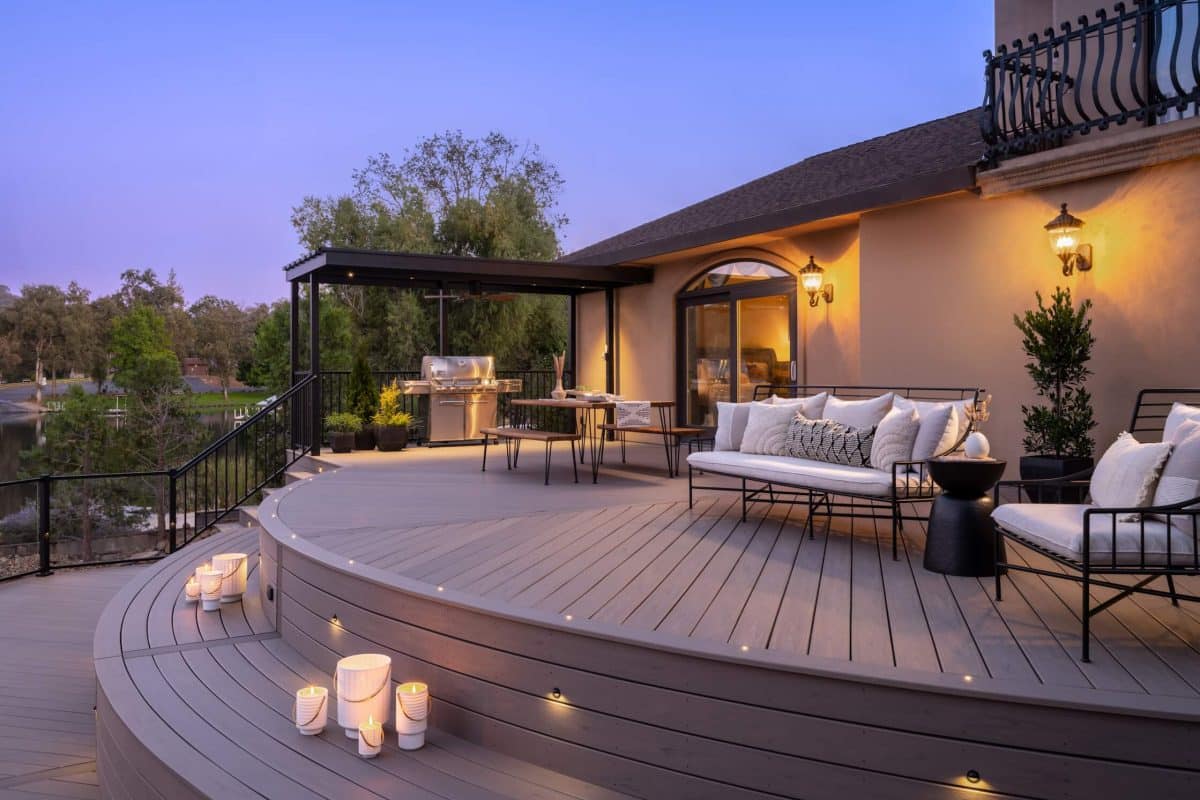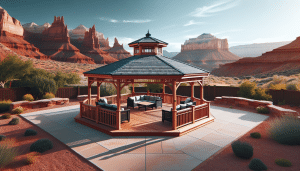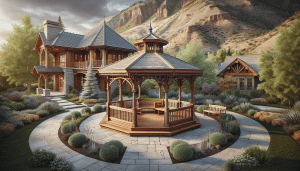Welcome to Utah Deck Supply’s guide on “Composite vs. Wood Decks: Which Is Right for You?” When it comes to choosing the material for your new deck, it’s essential to make an informed decision. Both composite and wood decks offer unique benefits, and your choice should align with your preferences, budget, and lifestyle. In this blog post, we’ll explore the pros and cons of each option to help you determine which is the right fit for your outdoor living space.
The Decking Dilemma
Decks are a beloved feature of outdoor living, offering a space to relax, entertain, and connect with nature. Whether you’re building a new deck or considering a deck renovation, the choice between composite and wood is a significant decision.
The Case for Composite Decks
Pros of Composite Decks:
- Durability: Composite decking is engineered for durability. It resists rot, decay, and insect damage, making it a long-lasting choice.
- Low Maintenance: Composite decks require minimal maintenance. They don’t need staining, sealing, or frequent cleaning like wood decks.
- Color and Style Options: Composite decking comes in a wide range of colors and styles, allowing you to achieve the look you desire without the need for paint or stain.
- Splinter-Free: Unlike wood, composite decking is splinter-free, making it safer for families with children and pets.
- Eco-Friendly: Many composite materials are made from recycled plastics and wood fibers, making them an eco-friendly choice.
Cons of Composite Decks:
- Higher Initial Cost: Composite decking typically has a higher upfront cost than wood. However, the lower maintenance requirements can offset this over time.
- Limited Natural Look: While composite decks mimic the appearance of wood, some homeowners prefer the authenticity of real wood.
- Heat Retention: Composite decks can get hotter in direct sunlight compared to wood, which may not be ideal in warm climates.
The Case for Wood Decks
Pros of Wood Decks:
- Natural Beauty: Wood decks have a timeless and natural look that many homeowners find appealing. They can be stained or painted to achieve various aesthetics.
- Cost-Effective: Wood decking is often more budget-friendly upfront compared to composite materials.
- Easy to Repair: Wood decks are easy to repair and refinish. Damaged boards can be replaced individually.
- Cooler in Sunlight: Wood decks tend to stay cooler than composite decks when exposed to direct sunlight.
Cons of Wood Decks:
- Maintenance Intensive: Wood decks require regular maintenance, including staining, sealing, and more frequent cleaning to prevent rot and decay.
- Prone to Damage: Wood decks are susceptible to rot, decay, and insect infestations if not properly maintained.
- Shorter Lifespan: While wood decks can last for many years with proper care, they generally have a shorter lifespan compared to composite decks.
Making Your Choice
Choosing between composite and wood decks ultimately comes down to your priorities and preferences. Consider factors such as your budget, maintenance commitment, desired aesthetics, and climate. Both options can provide a beautiful and functional outdoor space; it’s a matter of selecting the one that aligns with your lifestyle.
Conclusion
At Utah Deck Supply, we’re here to help you make the right choice for your deck project. Whether you opt for the low-maintenance benefits of composite or the natural beauty of wood, we have the expertise to bring your vision to life. Contact us at 385-398-9320 or visit our website here to explore your decking options further.




